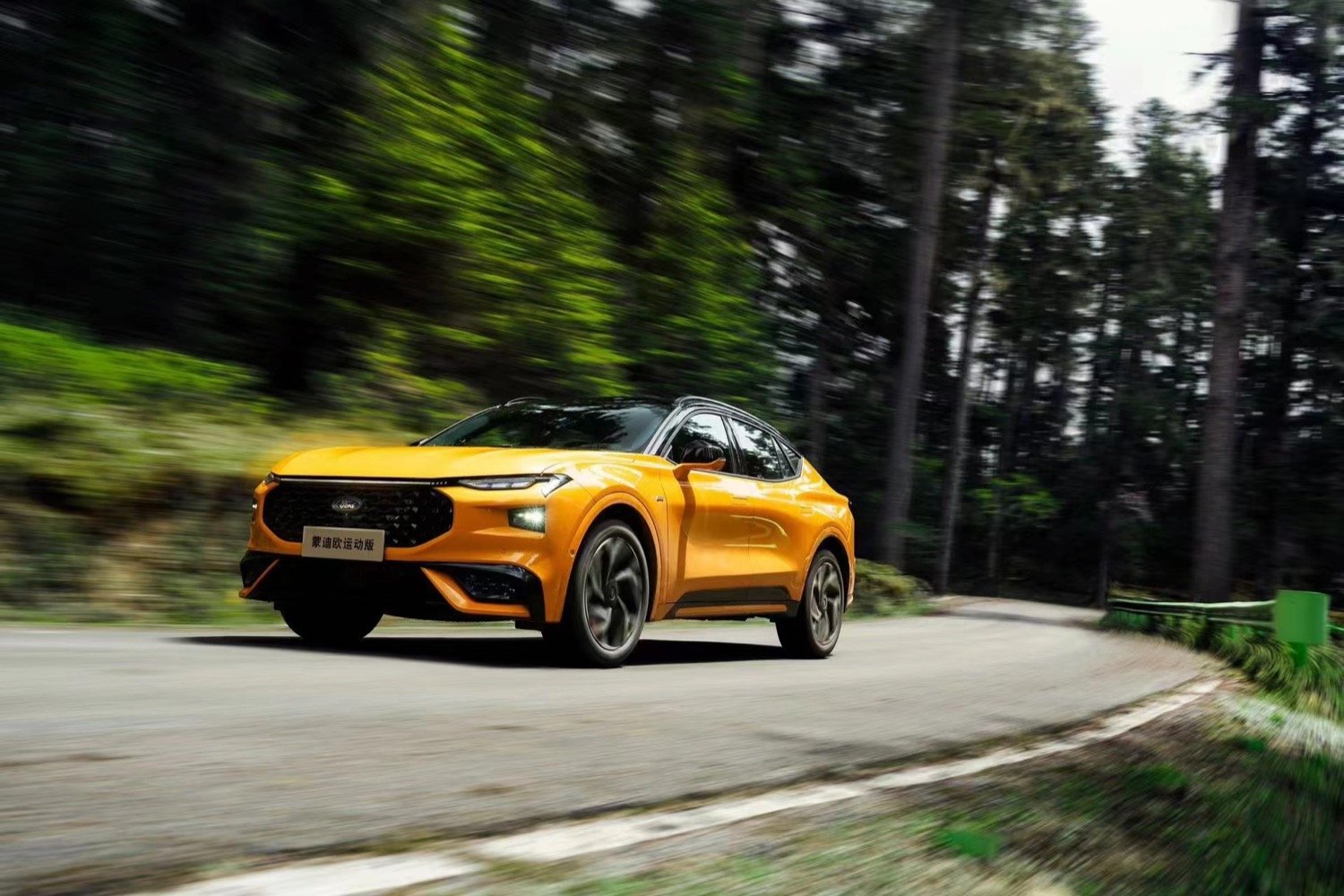Luxury Automakers Face Headwinds In China: Case Studies Of BMW And Porsche

Table of Contents
Shifting Consumer Preferences in the Chinese Luxury Car Market
Chinese consumer behavior is rapidly evolving, presenting significant challenges for established luxury car brands. The once unwavering brand loyalty is weakening, replaced by a more discerning and demanding customer base. Key changes include:
-
Increasing demand for electric vehicles (EVs) and hybrid models: Chinese consumers are increasingly environmentally conscious and attracted to the technological advancements in EVs. This shift is forcing traditional luxury automakers to accelerate their EV development and deployment. Data shows a significant year-on-year increase in EV sales within the luxury segment, surpassing initial projections.
-
Growing preference for domestic luxury brands and technological innovation: Homegrown luxury brands like NIO, XPeng, and Li Auto are rapidly gaining traction, offering competitive features and leveraging cutting-edge technology, including advanced driver-assistance systems (ADAS) and seamless connectivity. This increased competition is forcing international players to up their game.
-
Shifting brand loyalty amongst younger, tech-savvy consumers: Younger Chinese consumers are less tied to traditional luxury brands and are more receptive to new players offering innovative technologies and personalized experiences. This necessitates a shift in marketing and branding strategies.
-
The rise of digital marketing and online sales channels impacting traditional dealerships: Online platforms and e-commerce are changing the way luxury cars are bought and sold in China. This requires luxury automakers to invest heavily in digital marketing and adapt to the changing sales landscape.
-
Increased scrutiny on environmental impact and sustainability: Chinese consumers are increasingly concerned about the environmental impact of their purchases, putting pressure on automakers to adopt sustainable manufacturing practices and offer eco-friendly vehicles. This growing awareness influences purchase decisions.
The changing demographics and preferences of Chinese luxury car buyers necessitate a fundamental reassessment of traditional marketing strategies and product offerings. BMW and Porsche, among others, are grappling with this shift, needing to offer more than just a prestigious badge.
Intensifying Competition from Domestic and International Brands
The Chinese luxury car market is fiercely competitive. BMW and Porsche face pressure from both domestic and international rivals employing various strategies to capture market share:
-
Rise of competitive domestic brands like NIO, XPeng, and BYD offering comparable luxury features at lower prices: These domestic brands are leveraging advanced technologies and aggressive pricing strategies, directly challenging the established players. This price competition impacts the profitability of luxury brands.
-
Pressure from established international competitors like Mercedes-Benz and Audi, constantly innovating: The competition isn't just from domestic players; established international brands are continuously innovating and improving their offerings, keeping the pressure high on BMW and Porsche.
-
Price wars and promotional strategies impacting profitability: In a bid to maintain market share, many players engage in price wars and promotional activities, significantly affecting profit margins for all involved.
-
The challenge of maintaining a strong brand image in a highly competitive environment: Maintaining a premium brand image while competing on price and technology is a major challenge for established luxury car brands.
This intensifying competition necessitates strategic innovation and a focus on unique selling propositions beyond simple brand recognition. BMW and Porsche must differentiate themselves through exceptional technology, personalized experiences, and strong brand narratives.
Economic and Geopolitical Factors Impacting Sales
Macroeconomic factors and geopolitical events significantly impact sales in the Chinese luxury car market:
-
Impact of economic slowdowns and fluctuating currency exchange rates on consumer spending: Economic slowdowns or uncertainty can lead to decreased consumer spending, particularly on luxury goods like premium vehicles. Currency fluctuations also impact pricing and profitability.
-
The influence of trade tensions and geopolitical uncertainty on import costs and consumer confidence: Trade disputes and geopolitical instability can increase import costs and negatively impact consumer confidence, affecting sales volumes.
-
Government regulations and policies affecting the automotive industry in China: Government regulations on emissions, safety standards, and other aspects of the automotive industry directly influence the operations and strategies of luxury automakers.
-
The increasing importance of navigating complex regulatory environments: Successfully operating in China requires a thorough understanding of and compliance with complex regulatory landscapes.
These external factors require careful navigation and proactive risk management strategies to mitigate potential negative impacts on sales and profitability.
BMW and Porsche's Responses to Market Challenges: Case Studies
BMW and Porsche are implementing diverse strategies to adapt to the changing landscape of the Chinese luxury car market:
-
BMW's strategies: BMW has invested heavily in electric vehicles, launching several EV models specifically targeted at the Chinese market. They’ve also implemented localized marketing campaigns to resonate with Chinese consumers and embraced digital sales channels.
-
Porsche’s approach: Porsche is focusing on maintaining its exclusive brand image while introducing more electrified models. They’re leveraging their strong brand heritage while integrating advanced technologies to appeal to younger buyers.
Both brands have had successes and failures. BMW's electric vehicle strategy is gaining traction, while Porsche's focus on exclusivity requires a delicate balance. Future strategies must include further localization of product offerings, targeted marketing, and a strong focus on digital customer experience. Continuous innovation in electric vehicle technology and autonomous driving features will be crucial for long-term success.
Conclusion
Luxury automakers like BMW and Porsche face significant headwinds in the Chinese market, stemming from shifting consumer preferences, intensifying competition, and economic uncertainties. The changing landscape demands a dynamic approach characterized by rapid adaptation, technological innovation, and a deep understanding of Chinese consumer behavior. The case studies of BMW and Porsche highlight the challenges and opportunities in this dynamic environment. Understanding these headwinds and proactively adapting to the evolving market are paramount for achieving sustainable growth in this lucrative, yet complex, market. Further research into consumer behavior and market adaptation strategies is essential for navigating this dynamic environment and achieving sustainable growth in the lucrative Chinese luxury auto market.

Featured Posts
-
 Lane Thomas A Promising Start To His Guardians Career
Apr 23, 2025
Lane Thomas A Promising Start To His Guardians Career
Apr 23, 2025 -
 Adeyemi Praesentiert Sich Stylish In Dortmund
Apr 23, 2025
Adeyemi Praesentiert Sich Stylish In Dortmund
Apr 23, 2025 -
 Strong Bullpen Performance Cole Ragans Leads Royals To Victory Over Brewers
Apr 23, 2025
Strong Bullpen Performance Cole Ragans Leads Royals To Victory Over Brewers
Apr 23, 2025 -
 Neuer Bvb Star Adeyemi Mit Elegantem Stil
Apr 23, 2025
Neuer Bvb Star Adeyemi Mit Elegantem Stil
Apr 23, 2025 -
 Victoria Para Rayadas Gracias Al Doblete De Burky
Apr 23, 2025
Victoria Para Rayadas Gracias Al Doblete De Burky
Apr 23, 2025
